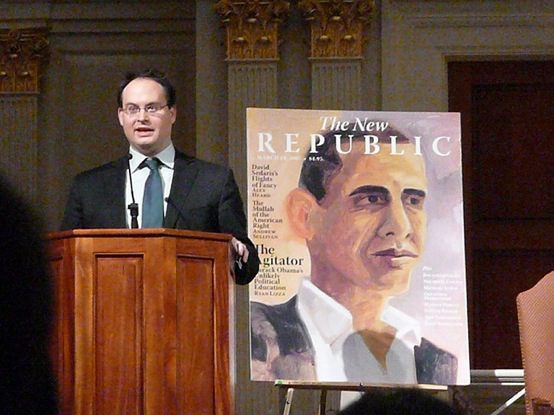Shakeup at TNR

I would like to say that I’m shaken by the dramatic shake-up just announced at The New Republic, which sees Franklin Foer and Leon Wieseltier leaving the – well, I was going to say the magazine, but it isn’t a magazine anymore apparently, but rather a “digital media company,” whatever that is. TNR, after all, was the magazine that introduced me to public intellectual life. I read it in the school library in high school – no, actually, I devoured it. It was clever, but also serious – political, but also literary. And, in the 1980s and 1990s, it was hard to imagine a magazine having more influence on the shape of debate. The first iteration of my politics were substantially shaped by its sensibility.
But I don’t miss that sensibility. There’s a hair’s-breadth of difference between the classic TNR sensibility that I grew up with, the sensibility that Leon Wieseltier embodied so well, and the sensibility I encountered in the posthumous Irving Kristol collection, The Neoconservative Persuasion. That sensibility, as you can tell from my review, positively gives me hives these days. (And by the way, I’m not even talking about foreign policy.)
I don’t want to sound peevish. If you ask me to mourn TNR’s passing, I can do that, and in style. But I have a feeling that a lot of other TNR lovers are going to indulge in nostalgia, and tell sad tales about the death of the public intellectual. And I’m just not going to indulge that way.
I can wish, honestly, that I had more hope for what TNR is about to become. I don’t have much. Chris Hughes sounds like he’s trying to make TNR into something without much of a distinctive sensibility at all. I would have liked to see what TNR would have become with a fierce but critical young radical at the helm, someone who would recall the magazine’s younger years. That’s not what it has been for a very long time, and it’s not what it sounds like it’s going to be in its next incarnation.
But if it’s not going to be that, I still don’t want it to be what it was in the 1980s and 1990s. That time is gone. Chris Hughes seems determined to follow the extant media trends into the future. I’d prefer to see TNR lead than follow, but the future is where it has to go, one way or another.
And maybe that fierce but critical young radical deserves a magazine of her own to found.